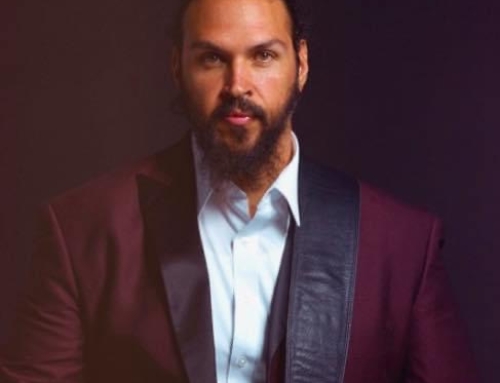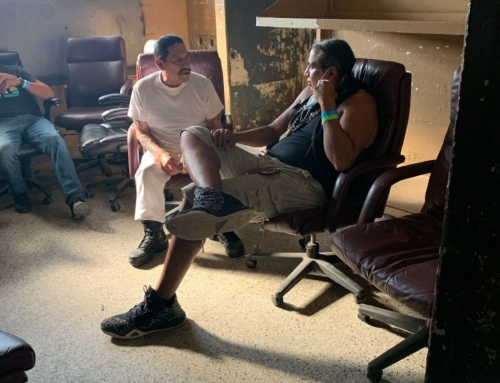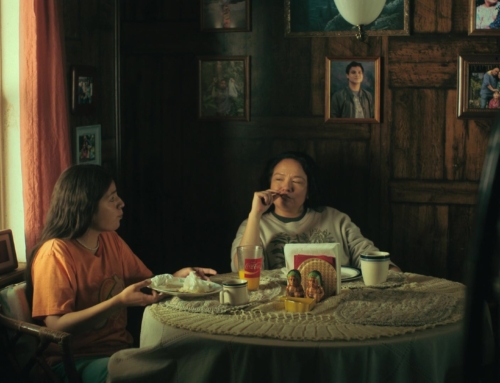When Faith Phillips (Cherokee) wins her first Oscar they’ll need an extra minute of screen time just to list her accomplishments. Lawyer, teacher, writer of novels and screenplays, and— most recently— Executive Producer. As you can imagine, Faith has many stories to tell about her life and its different paths. These stories are influenced by her community, a community she keeps at the forefront of everything she does, including breaking into the film industry.
Former Principal Chief of the Cherokee Nation Wilma Mankiller wrote her letter of recommendation for law school, instilling in Faith the idea of lifting your community up with you as you succeed. “She didn’t have to do that,” Faith says, “she was retired by that time. Yet she made the effort to reach back and lift up another Cherokee girl from Adair County.” Faith says that she’s “dedicated to the Cherokee tenet of service,” and that every opportunity she gets, she will “reach back and pull up another Adair County student.”
CNFO had the chance to chat with Faith about her booming film career, and how her Cherokee roots have shaped it.
How did you hear about the Native Directory?
I’ve been writing as a career for over ten years now and all my work has been focused on books. I decided to take a shot at screenwriting when I saw a class sponsored by CNFO at OSU-Tulsa. The Cherokee Nation Film Office awarded me a scholarship to study under Zach Litwack. I wrote my first short screenplay in that class. Afterward, I registered as a Screenwriter with the Native Directory.
Have you been contacted through the Directory for jobs?
I’ve been contacted by several producers as well as an award-winning filmmaker through my listing as a screenwriter with the CNFO Directory. New interest seems to be firing up in getting our stories right these days. I’ve been offered opportunities to collaborate on multiple projects, including a film set during the Dust Bowl era. My family tells so many fascinating stories from that time period. It’s yet another story about our resilience.
What has been the most exciting moment of your career so far?
Last fall I went to a meeting with network executives to pitch my docu-series. As artists, we’re often plagued by insecurity and self-doubt. That day, though, I sat at a conference table eyeball to eyeball with the Chief Creative Officer and explained to him why it was important for Cherokees to tell this particular story, and nobody else. I even pounded my fist on the conference table! In that moment, I felt so excited as a Cherokee woman, to go out with confidence and respectfully declare that we would tell our own story. It worked, and we got the deal. That was a rush.
Do you have any upcoming projects that you can tell us about?
I signed on as Executive Producer for a documentary series with Texas Crew Productions last year. We’ll be filming the series in the Cherokee Nation through the summer. It will be televised to a national audience and Cherokee storytelling will be at its core.
Why is Native representation in film and television important to you?
The documentary series on which we’re currently at work is centered around a notorious cold case that took place in the Cherokee Nation. The story’s already been told on film several different times but never from a Cherokee perspective, or with an understanding of our culture. It’s hard for me to fathom how you can come in from the outside, shoot a doc on Cherokee soil about Cherokees, and never consider the voices or perspectives of people who live here. The unique, tragic, and beautiful parts of our story have largely been left out. It’s easy to dismiss a group of people if you never hear their voices. When we represent ourselves in film and television it begins a dialogue and it announces our presence. Hate is learned and born from a place of ignorance and pain. We can’t begin to heal destructive mind-sets like that until we get a vigorous discussion happening out in the open. Let’s shine a light on it. That’s my philosophy. You can’t begin to fix something if you don’t talk about it.
What does the future of Indigenous film look like?
My vision is that I see an actual Cherokee network one day, one where we create all the content that any other network has – news, documentaries, cartoons, drama series, comedies – all of it. We won’t have to ask anyone for permission. We’ll make content and programming decisions ourselves. We’ll be all over the world with our voices and stories. That’s the future and it’s not so far away.
What advice would you give to young people wanting to pursue a career in the film industry?
Young people in the Cherokee Nation should soon have an option to study film, screenwriting, setiquette, and other film-related subjects in our public schools. My advice to students is that you just say “YES” every time an opportunity presents itself. Get your foot in that door and then go the extra mile in your work. Don’t be afraid of looking like a fool. I can’t tell you how many times I’ve embarrassed myself on a radio or TV interview. But every time I learned something and I got better. I see our young people stepping out of their senior year and stepping on a set, ready to make movies. I’ve spoken to classes in Adair County and told them when I was in their shoes twenty-five years ago, a film career was beyond any of our wildest dreams. Not even a possibility. Now it’s here, and it’s a very real career option. Say yes and jump in. Bring a strong work ethic when you come and you will find employment and opportunity.
“Wilma said that it was the ‘service’ part of her life that brought the greatest fulfillment,” says Faith. “It’s that idea of Gadugi, where you put your people’s needs ahead of your own. I’m dedicated to that. It’s an incredibly beautiful way to live.”
Are you or someone you know interested in getting into the Native Talent Directory? Check out our website, or email [email protected] for more information!







